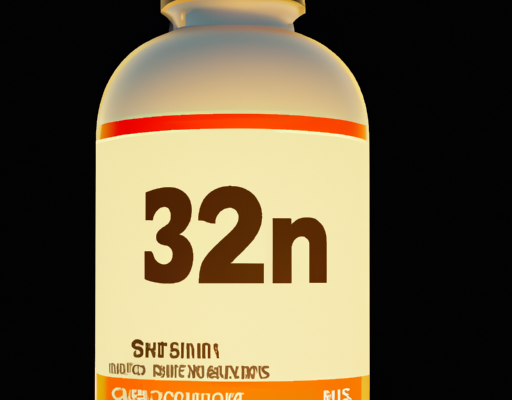Background
Type 1 Diabetes is an autoimmune disorder which is often diagnosed in childhood and requires long-term management with specific diets, physical activity and insulin therapy. Basal insulin is an essential element of diabetes therapy, supplementing dietary and lifestyle management. Basal insulin, such as glargine, is a long-acting drug that is administered once daily and helps maintain blood glucose levels between meals. It may also be used to control blood glucose levels overnight, during extended periods of fasting, or to prevent hypoglycemia. Basal insulin is used in combination with rapid-acting insulin analogs such as lispro, aspart, and glulisine to provide targeted coverage before meals and snacks and to supplement mealtime insulin doses. While not a substitute for careful monitoring of blood glucose levels and regular consultation with healthcare professionals, basal insulin is an important tool in managing type 1 diabetes.
Types of Basal Insulin
Basal insulin is a long-acting form of insulin used to treat type 1 diabetes. It is important for maintaining stable blood glucose levels throughout the day. There are several types of basal insulin available on the market, with different durations of action that vary depending on the individual’s needs. Here are the different types of basal insulin available:
- Glargine (Lantus): This is a basal insulin with a long duration of action, typically lasting 24 hours.
- Detemir (Levemir): This is a basal insulin with an intermediate duration of action, typically lasting around 20 hours.
- Glargine U100 (Toujeo): This is a newer form of glargine with an extended duration of action, typically lasting 36 hours.
Basal insulin, taken once or twice a day, is used to keep blood glucose levels in the normal range. It helps to provide the body with a steady supply of insulin throughout the day and night and is usually taken in combination with other types of insulin. It is important to speak with a healthcare provider to determine which type of insulin is best suited for an individual’s needs.
Benefits
For people with Type 1 diabetes, basal insulin is a crucial part of managing the condition. Basal insulin is a slow-acting form of insulin that helps to keep blood sugar levels stable between meals. Basal insulin is usually taken once or twice a day, depending on an individual’s needs. The health benefits of basal insulin for Type 1 diabetes include reduced risks of hypoglycemia, better long-term glycemic control, improved insulin sensitivity, and improved quality of life. With regular monitoring and management by a healthcare professional, basal insulin can help to keep blood sugar levels stable and reduce the risk of long-term complications associated with Type 1 diabetes such as heart and kidney disease.
Risks
For people with Type 1 Diabetes, using Basal insulin can come with potential risks. What makes these risks different is that many of them involve a risk of hypoglycemia, or low blood sugar. This can happen if a person uses too much insulin, or if the timing of their injections does not fit with their meals. Hypoglycemia can result in confusion and fainting, so it is important for people with Type 1 Diabetes to monitor their blood sugar levels throughout the day. People may also need to adjust insulin doses to compensate for physical activity, as well as changes in their diet. In addition to the risk of hypoglycemia, other risks associated with taking Basal insulin include allergic reactions, skin infections from injections, and changes in body weight. For these reasons, it is important to speak with a doctor before using Basal insulin to ensure it is being used safely.
Dosage
Basal insulin is an important part of the treatment plan for type 1 diabetes. It is the long-acting form of insulin that helps to keep blood sugar levels in check while you sleep and throughout the day, when you are not eating. The dosage of basal insulin is specific to each individual and is based on factors such as body weight, activity level, and response to previous treatments. Your health care provider will work with you to decide on the right dosage, and adjust it over time to ensure that your blood sugar levels remain in your target range. Learning how to properly administer basal insulin is an important part of life with type 1 diabetes.
Side Effects
When using basal insulin to help control type 1 diabetes, it is important to monitor potential side effects on the body and health. While in some cases side effects may be mild and temporary, they can also be more severe and possibly life-threatening in some cases. Some of the most common side effects that can occur with basal insulin include low blood sugar levels, weight gain, skin irritation, and infection at the injection site. Furthermore, if basal insulin is used for an extended period of time it may increase the risk of long-term health problems such as bone fractures, nerve damage, and heart disease. It is important to discuss any potential side effects with a healthcare professional before starting or changing this treatment. The healthcare professional can provide guidance on how to best manage and monitor the body for any side effects that may occur.
Conclusion
In conclusion, basal insulin is a vital part of treatment for type 1 diabetes. It helps keep blood glucose levels steady, reducing the risk of complications and improving quality of life. To ensure that basal insulin works as effectively as possible, it is important to:
- Monitor blood glucose levels regularly.
- Keep your diabetes management plan up to date.
- Eat a healthy diet and maintain a healthy weight.
- Exercise regularly.
- Take your medications as prescribed.
Basal insulin is an effective, safe and long-term treatment for type 1 diabetes. With careful management, it can help you stay healthy and enjoy a better quality of life.
In conclusion, basal insulin is a vital part of treatment for type 1 diabetes. It helps keep blood glucose levels steady, reducing the risk of complications and improving quality of life. To ensure that basal insulin works as effectively as possible, it is important to:
- Monitor blood glucose levels regularly.
- Keep your diabetes management plan up to date.
- Eat a healthy diet and maintain a healthy weight.
- Exercise regularly.
- Take your medications as prescribed.
Basal insulin can be a powerful tool in managing type 1 diabetes, but it is important to understand its potential side effects and the importance of regular medical check-ups. With careful management, basal insulin can help you stay healthy and enjoy a better quality of life.





No Comments